Après une première réaction la veille, à 18h30 GMT (13h43 HNE) le Président des États-Unis, le démocrate Joe Biden prononce une allocution depuis l’aile est de la Maison Blanche au cours de laquelle il condamne l’invasion de l’Ukraine par la Russie. Il revient notamment sur les informations dont les États-Unis disposaient, indiquant le caractère planifié de cette attaque et annonce des sanctions à venir, en concertation avec les autres nations.
Version française :
Désolé de vous avoir fait attendre. Bonjour. L’armée russe a commencé une attaque brutale contre le peuple ukrainien, sans provocation, sans justification, sans nécessité.
C’est une attaque préméditée. Poutine la planifiait depuis des mois, comme nous l’avons toujours dit. Il a mobilisé plus de 175 000 soldats et des équipements militaires le long de la frontière ukrainienne.
Il a mis en place des réserves de sang et construit des hôpitaux de campagne, ce qui dit en dit long sur ses intentions depuis le début.
Il a rejeté tous les efforts de bonne foi faits par les États-Unis et leurs alliés et partenaires pour aborder les problèmes de sécurité mutuelle par le dialogue afin d’éviter un conflit inutile et d’éviter des souffrances humaines.
Pendant des semaines, nous avons prévenu que cela allait arriver. Et maintenant, cela se passe en grande partie comme nous l’avions prévu.
La semaine dernière, nous avons vu les tirs d’artillerie augmenter dans le Donbass, la région dans l’est de l’Ukraine contrôlée par les séparatistes soutenus par la Russie.
Le gouvernement russe a perpétré des cyberattaques contre l’Ukraine.
Nous avons assisté à une mise en scène politique à Moscou, à des affirmations farfelues et sans fondement selon lesquelles l’Ukraine était sur le point d’envahir la Russie et de lancer une guerre contre elle, que l’Ukraine était prête à utiliser des armes chimiques, que l’Ukraine avait commis un génocide – sans aucune preuve.
Nous avons assisté à une violation flagrante du droit international dans la tentative de la création unilatérale de deux nouvelles prétendues républiques sur le territoire souverain de l’Ukraine.
Et au moment même où le Conseil de sécurité de l’ONU se réunissait pour défendre la souveraineté de l’Ukraine afin d’éviter une invasion, Poutine a déclaré sa guerre.
En l’espace de quelques instants, des frappes de missiles ont commencé à pilonner des villes historiques en Ukraine.
Des raids aériens ont suivi. Les tanks et les troupes sont arrivées après.
Nous avons été transparents avec le monde. Nous avons partagé des preuves déclassifiées sur les plans, les cyberattaques et les prétextes de la Russie, afin qu’il n’y ait ni confusion ni dissimulation quant aux actions de Poutine.
Poutine est l’agresseur. Poutine a choisi cette guerre. Et maintenant, c’est lui et son pays qui en supporteront les conséquences.
Aujourd’hui, j’autorise de nouvelles sanctions sévères et de nouvelles limitations visant les exportations vers la Russie.
Cela va imposer des coûts sévères à l’économie russe, dans l’immédiat et à long terme.
Nous avons délibérément conçu ces sanctions de manière à maximiser l’impact à long terme sur la Russie et à atténuer l’impact sur les États-Unis et leurs Alliés.
Je tiens à être clair : les États-Unis n’agissent pas seuls. Depuis des mois, nous avons construit une coalition de partenaires représentant largement plus de la moitié de l’économie mondiale.
Vingt-sept membres de l’Union européenne, dont la France, l’Allemagne, l’Italie ainsi que le Royaume-Uni, le Canada, le Japon, l’Australie, la Nouvelle-Zélande et bien d’autres, pour amplifier l’impact conjoint de notre riposte.
J’ai parlé avec les dirigeants du G7 ce matin et nous sommes entièrement d’accord. Nous allons limiter la capacité de la Russie à faire des affaires en dollars, en euros, en livres et en yens, à faire partie de l’économie mondiale. Nous allons limiter sa capacité à le faire. Nous allons réduire sa capacité à financer et à développer l’armée russe.
Nous imposerons des mesures majeures et compromettrons sa capacité à être compétitive dans l’économie de haute technologie du XXIe siècle.
Nous avons déjà vu l’impact de nos actions sur la monnaie russe, le rouble, qui est tombé aujourd’hui à son niveau le plus faible de l’histoire. Le marché boursier russe a plongé aujourd’hui. Les taux d’emprunt du gouvernement russe ont grimpé de 15 %.
Avec les actions d’aujourd’hui, nous avons maintenant sanctionné des banques russes qui détiennent ensemble environ 1 000 milliards de dollars d’actifs.
Nous avons coupé la plus grande banque de la Russie, une banque qui détient à elle seule plus d’un tiers de ses actifs bancaires, du système financier américain.
Aujourd’hui, nous bloquons également quatre autres grandes banques. Cela signifie que tous les actifs qu’elles détiennent en Amérique seront gelés. Y compris ceux de la VTB, la deuxième banque de Russie, qui a 250 milliards de dollars d’actifs.
Comme promis, nous rajoutons également des noms à la liste des élites russes et des membres de leurs familles qui sont sanctionnés.
Comme je l’ai dit mardi, ce sont des gens qui profitent personnellement des politiques du Kremlin et ils doivent connaître leur part de souffrances. Dans les jours à venir, nous continuerons de nous engager sur la voie de désignations visant des milliardaires corrompus.
Mardi, nous avons empêché le gouvernement russe de lever des fonds auprès d’investisseurs américains ou européens.
Nous allons maintenant appliquer les mêmes restrictions à leurs plus grandes entreprises publiques. Des entreprises dont les actifs dépassent 1 400 milliards de dollars.
Certains des effets les plus puissants de nos actions se feront sentir au fil du temps, à mesure que nous restreindrons l’accès de la Russie aux financements et à la technologie pour les secteurs stratégiques de son économie et que nous dégraderons sa capacité industrielle pour les années à venir.
Entre nos actions et celles de nos alliés et partenaires, nous estimons que nous couperons plus de la moitié des importations russes de haute technologie.Cela portera un coup à sa capacité de continuer à moderniser son armée. Cela dégradera son industrie aérospatiale, y compris son programme spatial. Cela nuira à sa capacité à construire des navires, ce qui réduira sa capacité à être compétitive au plan économique. Et cela portera un coup dur aux ambitions stratégiques à long terme de Poutine.
Et nous nous préparons à faire plus encore. Outre les pénalités économiques que nous imposons, nous prenons des mesures pour défendre nos alliés de l’OTAN, en particulier ceux des pays de l’Est.
Demain, l’OTAN convoquera une réunion au sommet. Nous y serons pour rassembler les dirigeants de 30 nations alliées et partenaires étroits en signe de notre solidarité et définir les prochaines mesures que nous prendrons en vue de renforcer encore plus tous les aspects de notre alliance au sein de l’OTAN.
Nous avons fourni plus de 650 millions de dollars à l’Ukraine pour sa défense rien que cette année, mais je le répète : nos forces ne sont pas et ne seront pas engagées dans le conflit avec la Russie en Ukraine. Nos forces iront en Europe non pas pour se battre en Ukraine, mais pour défendre nos alliés de l’OTAN et rassurer les alliés de l’Est.
Comme je l’ai dit très clairement, les États-Unis défendront chaque centimètre carré du territoire de l’OTAN avec toute la force de la puissance américaine. Et la bonne nouvelle, c’est que l’OTAN est plus unie et déterminée que jamais.
Il ne fait aucun doute, aucun doute, que les États-Unis et tous les alliés de l’OTAN respecteront les engagements au titre de l’Article V, qui stipule qu’une attaque contre l’un d’entre nous est une attaque contre tous.
Ces dernières semaines, j’ai ordonné le déploiement de milliers de soldats supplémentaires en Allemagne et en Pologne dans le cadre de notre engagement envers l’OTAN.
Mardi, en réponse aux actions agressives de la Russie, y compris à la présence de ses soldats au Bélarus et en mer Noire, j’ai autorisé le déploiement de forces terrestres et aériennes déjà stationnées en Europe vers les Alliés du flanc est de l’OTAN, l’Estonie, la Lettonie, la Lituanie, la Pologne et la Roumanie.
Nos alliés se sont également mobilisés, avec d’autres alliés, le reste de l’OTAN, ils ont intensifié leurs propres forces et capacités pour assurer une défense collective.
Et aujourd’hui, dans les heures qui ont suivi le déclenchement de l’attaque, l’OTAN s’est réunie pour activer des plans de riposte.
Cela permettra aux forces à haut niveau de préparation de l’OTAN de se déployer où et quand ce sera nécessaire pour protéger nos alliés de l’OTAN aux frontières orientales de l’Europe.
Et maintenant, j’autorise le déploiement en Allemagne de capacités supplémentaires dans le cadre de la réponse de l’OTAN, y compris de certaines des forces basées aux États-Unis que le département de la Défense a mises en attente il y a plusieurs semaines.
J’ai également parlé avec le secrétaire à la Défense, M. Austin, et au général Milley, le chef d’état-major interarmées, des préparatifs en vue de mouvements supplémentaires, s’ils s’avéraient nécessaires pour protéger les alliés de l’OTAN et soutenir la plus grande alliance militaire de l’histoire du monde, l’OTAN.
Dans le même temps, mon administration utilise tous les outils à sa disposition pour protéger les familles et les entreprises américaines de la hausse des prix à la pompe.
Nous prenons des mesures énergiques pour faire baisser les coûts, et les sociétés pétrolières et gazières américaines ne doivent pas exploiter ce moment pour augmenter leurs prix et accroître leurs profits.
Dans notre train de sanctions, nous avons spécifiquement prévu de permettre la poursuite des paiements liés à l’énergie.
Nous surveillons de près les approvisionnements en énergie pour déceler toute perturbation. Nous agissons en coordination avec les principaux pays producteurs et consommateurs de pétrole dans l’intérêt commun de sécuriser l’approvisionnement énergétique mondial.
Nous travaillons activement avec des pays du monde entier pour la mise sur le marché de réserves stratégiques de pétrole des principaux pays consommateurs d’énergie. Et les États-Unis mettront sur le marché des barils de pétrole supplémentaires si les conditions le justifient.
Je sais que c’est difficile et que les Américains souffrent déjà. Je ferai tout ce qui est en mon pouvoir pour limiter la douleur que le peuple américain ressent à la pompe à essence. C’est un point crucial pour moi.
Mais cette agression ne peut pas rester sans réponse. Si c’était le cas, les conséquences pour l’Amérique seraient bien pires. L’Amérique tient tête à ceux qui intimident. Nous défendons la liberté. C’est ce que nous sommes.
Permettez-moi également de répéter l’avertissement que j’ai lancé la semaine dernière. Si la Russie poursuit ses cyberattaques contre nos entreprises et nos infrastructures critiques, nous sommes prêts à réagir.
Depuis des mois, nous travaillons en étroite collaboration avec le secteur privé pour renforcer nos cyberdéfenses et perfectionner notre capacité à répondre aussi aux cyberattaques russes.
Hier, dans la soirée, je me suis entretenu avec le président ukrainien, M. Zelensky, et je lui ai assuré que les États-Unis, avec leurs alliés et partenaires en Europe, soutiendraient les Ukrainiens dans la défense de leur pays. Nous fournirons une aide humanitaire pour atténuer leurs souffrances.
Et dans les premiers jours de ce conflit, les organes de propagande de la Russie continueront d’essayer de cacher la vérité et ils revendiqueront le succès de son opération militaire contre une menace inventée.
Mais l’histoire a montré à maintes reprises que les gains rapides de territoire finissent par céder la place à des occupations qui s’éternisent. À des actes de désobéissance civile massive et à des impasses stratégiques.
Les semaines et les mois à venir seront difficiles pour le peuple ukrainien. Poutine lui a infligé une grande douleur. Mais le peuple ukrainien a connu 30 ans d’indépendance. Il a montré à maintes reprises qu’il ne tolérera personne qui tente de faire faire marche arrière à son pays.
C’est un moment dangereux pour toute l’Europe, pour la liberté dans le monde entier. Poutine a commis une attaque contre les principes mêmes qui protègent la paix mondiale.
Mais, maintenant, le monde entier voit clairement les intentions de Poutine et de ses alliés du Kremlin. Il n’a jamais été question de véritables préoccupations de sécurité de leur part. Il s’est toujours agi d’une agression pure et simple. Du désir d’empire de Poutine par tous les moyens nécessaires. En intimidant les voisins de la Russie par la coercition et la corruption. En changeant les frontières par la force et en choisissant finalement une guerre sans cause.
Les actes de Poutine révèlent une vision sinistre de l’avenir de notre monde, où les pays prennent ce qu’ils veulent par la force.
Mais c’est une vision à laquelle les États-Unis et les nations éprises de liberté s’opposeront avec tous les outils de notre puissance considérable.
Les États-Unis et leurs alliés et partenaires en sortiront plus forts, plus unis, plus déterminés et plus résolus.
L’agression de Poutine contre l’Ukraine finira par coûter très cher à la Russie sur les plans économique et stratégique. Nous allons nous en assurer. Poutine sera un paria sur la scène internationale. Tout pays qui tolère l’agression flagrante de la Russie contre l’Ukraine sera entaché par association.
Quand l’histoire de cette époque sera écrite, elle dira que le choix de Poutine de mener une guerre totalement injustifiable contre l’Ukraine aura affaibli la Russie et renforcé le reste du monde.
La liberté, la démocratie et la dignité humaine. Ce sont des forces bien plus puissantes que la peur et l’oppression. Elles ne peuvent pas être anéanties par des tyrans comme Poutine et ses armées. Elles ne peuvent pas être effacées du cœur et des espoirs des gens, quelles que soient la violence et l’intimidation imposées. Elles perdurent.
Entre la démocratie et l’autocratie, entre la souveraineté et la soumission, ne vous méprenez pas : la liberté l’emportera.
Que Dieu bénisse le peuple d’une Ukraine libre et démocratique et qu’il protège nos troupes.
Source de la traduction en français : site de l’ambassade des États-Unis en France
Version américaine (elle comprend les échanges avec la presse qui suivent l’allocution) :
Sorry to keep you waiting. Good afternoon. The Russian military has begun a brutal assault on the people of Ukraine without provocation, without justification, without necessity.
This is a premeditated attack. Vladimir Putin has been planning this for months, as I’ve been — as we’ve been saying all along. He moved more than 175,000 troops, military equipment into positions along the Ukrainian border.
He moved blood supplies into position and built a field hospital, which tells you all you need to know about his intentions all along.
He rejected every good-faith effort the United States and our Allies and partners made to address our mutual security concerns through dialogue to avoid needless conflict and avert human suffering.
For weeks — for weeks, we have been warning that this would happen. And now it’s unfolding largely as we predicted.
In the past week, we’ve seen shelling increase in the Donbas, the region in eastern Ukraine controlled by Russian-backed separatists.
Rus- — the Russian government has perpetrated cyberattacks against Ukraine.
We saw a staged political theater in Moscow — outlandish and baseless claims that Ukraine was — Ukraine was about to invade and launch a war against Russia, that Ukraine was prepared to use chemical weapons, that Ukraine committed a genocide — without any evidence.
We saw a flagrant violation of international law in attempting to unilaterally create two new so-called republics on sovereign Ukrainian territory.
And at the very moment that the United Nations Security Council was meeting to stand up for Ukraine’s sovereignty to stave off invasion, Putin declared his war.
Within moments — moments, missile strikes began to fall on historic cities across Ukraine.
Then came in the air raids, followed by tanks and troops rolling in.
We’ve been transparent with the world. We’ve shared declassified evidence about Russia’s plans and cyberattacks and false pretexts so that there can be no confusion or cover-up about what Putin was doing.
Putin is the aggressor. Putin chose this war. And now he and his country will bear the consequences.
Today, I’m authorizing additional strong sanctions and new limitations on what can be exported to Russia.
This is going to impose severe costs on the Russian economy, both immediately and over time.
We have purposefully designed these sanctions to maximize the long-term impact on Russia and to minimize the impact on the United States and our Allies.
And I want to be clear: The United States is not doing this alone. For months, we’ve been building a coalition of partners representing well more than half of the global economy.
Twenty-seven members of the European Union, including France, Germany, Italy — as well as the United Kingdom, Canada, Japan, Australia, New Zealand, and many others — to amplify the joint impact of our response.
I just spoke with the G7 leaders this morning, and we are in full and total agreement. We will limit Russia’s ability to do business in Dollars, Euros, Pounds, and Yen to be part of the global economy. We will limit their ability to do that. We are going to stunt the ability to finance and grow Rus- — the Russian military.
We’re going to impose major — and we’re going to impair their ability to compete in a high-tech 21st century economy.
We’ve already seen the impact of our actions on Russia’s currency, the Ruble, which early today hit its weakest level ever — ever in history. And the Russian stock market plunged today. The Russian government’s borrowing rate spiked by over 15 percent.
In today’s actions, we have now sanctioned Russian banks that together hold around $1 trillion in assets.
We’ve cut off Russia’s largest bank — a bank that holds more than one third of Russia’s banking assets by itself — cut it off from the U.S. financial system.
And today, we’re also blocking four more major banks. That means every asset they have in America will be frozen. This includes V.T.B., the second-largest bank in Russia, which has $250 billion in assets.
As promised, we’re also adding names to the list of Russian elites and their family members that are sanctioning — that we’re sanctioning as well.
As I said on Tuesday, these are people who personally gain from the Kremlin’s policies and they should share in the pain. We will keep up this drumbeat of those designations against corrupt billionaires in the days ahead.
On Tuesday, we stopped the Russian government from raising money from U.S. or European investors.
Now, we’re going to apply the same restrictions to Russia’s largest state-owned enterprises — companies with assets that exceed $1.4 trillion.
Some of the most powerful impacts of our actions will come over time as we squeeze Russia’s access to finance and technology for strategic sectors of its economy and degrade its industrial capacity for years to come.
Between our actions and those of our Allies and partners, we estimate that we’ll cut off more than half of Russia’s high-tech imports.
It will strike a blow to their ability to continue to modernize their military. It’ll degrade their aerospace industry, including their space program. It will hurt their ability to build ships, reducing their ability to compete economically. And it will be a major hit to Putin’s long-term strategic ambitions.
And we’re preparing to do more. In addition to the economic penalties we’re imposing, we’re also taking steps to defend our NATO Allies, particularly in the east.
Tomorrow, NATO will convene a summit — we’ll be there — to bring together the leaders of 30 Allied nations and close partners to affirm our solidarity and to map out the next steps we will take to further strengthen all aspects of our NATO Alliance.
Although we provided over $650 million in defensive assistance to Ukraine just this year — this last year, let me say it again: Our forces are not and will not be engaged in the conflict with Russia in Ukraine. Our forces are not going to Europe to fight in Ukraine but to defend our NATO Allies and reassure those Allies in the east.
As I made crystal clear, the United States will defend every inch of NATO territory with the full force of American power. And the good news is: NATO is more united and more determined than ever.
There is no doubt — no doubt that the United States and every NATO Ally will meet our Article 5 commitments, which says that an attack on one is an attack on all.
Over the past few weeks, I ordered thousands of additional forces to Germany and Poland as part of our commitment to NATO.
On Tuesday, in response to Russia’s aggressive action, including its troop presence in Belarus and the Black Sea, I’ve authorized the deployment of ground and air forces already stationed in Europe to NATO’s eastern flank Allies: Estonia, Latvia, Lithuania, Poland, and Romania.
Our Allies have also been stepping up, adding — the other Allies, the rest of NATO — adding their own forces and capabilities to ensure our collective defense.
And today, within hours of Russia’s unleashing its assault, NATO came together and authorized and activated — an activation of response plans.
This will enable NATO’s high-readiness forces to deploy and — when and where they’re needed to protect our NATO Allies on the eastern boundaries of Europe.
And now I’m authorizing additional U.S. forces and capabilities to deploy to Germany as part of NATO’s response, including some of U.S.-based forces that the Department of Defense placed on standby weeks ago.
I’ve also spoken with Defense Secretary Austin and Chairman of the Joint Chiefs, General Milley, about preparations for additional moves should they become necessary to protect our NATO Allies and support the greatest military Alliance in the history of the world — NATO.
As we respond, my administration is using the tools — every tool at our disposal to protect American families and businesses from rising prices at the gas pump.
You know, we’re taking active steps to bring down the costs. And American oil and gas companies should not — should not exploit this moment to hike their prices to raise profits.
You know, in our sanctions package, we specifically designed to allow energy payments to continue.
We are closely monitoring energy supplies for any disruption. We have been coordinating with major oil producing and consuming countries toward our common interest to secure global energy supplies.
We are actively working with countries around the world to elevate [evaluate] a collective release from the Strategic Petroleum Reserves of major energy-consuming countries. And the United States will release additional barrels of oil as conditions warrant.
I know this is hard and that Americans are already hurting. I will do everything in my power to limit the pain the American people are feeling at the gas pump. This is critical to me.
But this aggression cannot go unanswered. If it did, the consequences for America would be much worse. America stands up to bullies. We stand up for freedom. This is who we are.
Let me also repeat the warning I made last week: If Russia pursues cyberattacks against our companies, our critical infrastructure, we are prepared to respond.
For months, we have been working closely with our private — with the private sector to harden their cyber defenses, sharpen our ability to respond to Russian cyberattacks as well.
I spoke late last night to President Zelenskyy of Ukraine and I assured him that the United States, together with our Allies and partners in Europe, will support the Ukrainian people as they defend their country. We’ll provide humanitarian relief to ease their suffering.
And in the early days of this conflict, Russian propaganda outlets will keep trying to hide the truth and claim success for its military operation against a made-up threat.
But history has shown time and again how swift gains in territory eventually give way to grinding occupations, acts of mass civil — mass civil disobedience, and strategic dead-ends.
The next few weeks and months will be hard on the people of Ukraine. Putin has unleashed a great pain on them. But the Ukrainian people have known 30 years of independence, and they have repeatedly shown that they will not tolerate anyone who tries to take their country backwards.
This is a dangerous moment for all of Europe, for the freedom around the world. Putin has a — has committed an assault on the very principles that uphold global peace.
But now the entire world sees clearly what Putin and his Kremlin — and his Kremlin allies are really all about. This was never about genuine security concerns on their part. It was always about naked aggression, about Putin’s desire for empire by any means necessary — by bullying Russia’s neighbors through coercion and corruption, by changing borders by force, and, ultimately, by choosing a war without a cause.
Putin’s actions betray his sinister vision for the future of our world — one where nations take what they want by force.
But it is a vision that the United States and freedom-loving nations everywhere will oppose with every tool of our considerable power.
The United States and our Allies and partners will emerge from this stronger, more united, more determined, and more purposeful.
And Putin’s aggression against Ukraine will end up costing Russia dearly — economically and strategically. We will make sure of that. Putin will be a pariah on the international stage. Any nation that countenances Russia’s naked aggression against Ukraine will be stained by association.
When the history of this era is written, Putin’s choice to make a totally unjustifiable war on Ukraine will have left Russia weaker and the rest of the world stronger.
Liberty, democracy, human dignity — these are the forces far more powerful than fear and oppression. They cannot be extinguished by tyrants like Putin and his armies. They cannot be erased by people — from people’s hearts and hopes by any amount of violence and intimidation. They endure.
And in the contest between democracy and autocracy, between sovereignty and subjugation, make no mistake: Freedom will prevail.
God bless the people of a free and democratic Ukraine. And may God protect our troops.
Q President Biden —
THE PRESIDENT: Associated Press, Zeke.
Q Chris Megerian. So, do you have any plans to speak with President Putin at this point? And what interactions have you had with the Russian government?
THE PRESIDENT: I heard the first part: Do I have any plans to speak with Putin at this point. And what?
Q What communications have you had with the Kremlin as far as military (inaudible) in Ukraine and making sure this does not spiral into a larger conflict?
THE PRESIDENT: Well, it’s a large conflict already. The way we’re going to assure it’s not going to spiral to a larger conflict is by providing all the forces needed in the Eastern European nations that are members of NATO. NATO is more united than it’s ever been.
And I have no plans to talk with Putin.
Wall Street Journal, Tarina [Tarini].
Q Mr. President, you didn’t mention SWIFT in your sanctions that you announced. Is there a reason why the U.S. isn’t doing that? Is there disagreement among Allies regarding SWIFT and whether Russia should be allowed to be a part of it?
THE PRESIDENT: The sanctions that we have proposed on all their banks is of equal consequence — maybe more consequence than SWIFT — number one.
Number two, it is always an option. But right now, that’s not the position that the rest of Europe wishes to take.
Cecilia Ve- — Vega, ABC.
Q Thank you, sir. Sir, sanctions clearly have not been enough to deter Vladimir Putin to this point. What is going to stop him? How and when does this end? And do you see him trying to go beyond Ukraine?
And a second question I’ll just give to you now: This statement that he gave last night will — that the We- — the threat that he gave — the West “will face consequences greater than any you have faced in history.” Is he threatening a nuclear strike?
THE PRESIDENT: I have no idea what he’s threatening. I know what he has done, number one.
And number two, no one expected the sanctions to prevent anything from happening. That has to sh- — this is going to take time. And we have to show resolve so he knows what’s coming and so the people of Russia know what he’s brought on them. That’s what this is all about.
This is going to take time. It’s not going to occur — he’s going to say, “Oh my God, these sanctions are coming. I’m going to stand down.”
He’s going to test the resolve of the West to see if we stay together. And we will. We will and it will impose significant costs on him.
Q Will he go beyond Ukraine, sir? Do you see him going beyond Ukraine?
Q Mr. President — Mr. President —
THE PRESIDENT: (Points to reporter.) Yes.
Q Thank you. Two topics, just really quick. First, markets are down and gas prices are up. I know you always stress the difference between Wall Street and Main Street, but everybody seems to be in for some economic pain. How economically painful is it going to get for people in this country?
And I do have one more question.
THE PRESIDENT: First of all, there’s no doubt that when a major nuclear power attacks and invades another country that the world is going to respond and markets are going to respond all over the world. So, there’s no doubt about that, number one.
Number two, the notion that this is going to last for a long time is highly unlikely, as long as we continue to stay resolved in imposing the sanctions we’re going to impose on Russia, period.
What’s your next question? I’m sorry.
Q The next question is: Did you underestimate Putin? And would you still describe him the way that you did in the summer, as a “worthy adversary”?
THE PRESIDENT: At the time, he was — I made it clear he was an adversary, and I said he was “worthy.” I didn’t underestimate him.
And I’ve read most of everything he’s written. Did you read the — I shouldn’t sa- — I’m not being a wise guy. The — you heard the speech he made — almost an hour’s worth of speeches — why he was going into Ukraine.
He has much larger ambitions in Ukraine. He wants to, in fact, reestablish the former Soviet Union. That’s what this is about.
And I think that his — his ambitions are — are completely contrary to the place where the rest of the world has arrived.
Q President Biden — President Biden —
Q And — and with that — with his ambitions, you’re confident that these devastating sanctions are going to be as devastating as Russian missiles and bullets and tanks?
THE PRESIDENT: Yes. Russian bullets, missiles, and tanks in Ukraine. Yes, I am.
Q Thank you, President Biden. If sanctions cannot stop President Putin, what penalty can?
THE PRESIDENT: I didn’t say sanctions couldn’t stop him.
Q But you’ve been talking about the threat of these sanctions for several weeks now —
THE PRESIDENT: Yes, but the threat of the sanctions and imposing the sanctions and seeing the effect of the sanctions are two different things.
Q Okay, but —
THE PRESIDENT: They’re two different things. And we’re now going to — he’s going to begin to see the effect of the sanctions.
Q And what will that do — how will that change his mindset here, given he’s attacking Ukraine as we speak?
THE PRESIDENT: Because it will so weaken his country that he’ll have to make a very, very difficult choices of whether to continue to move toward being a second-rate power or, in fact, respond.
Q You said, in recent weeks, that big nations cannot bluff when it comes to something like this. You recently said that the idea of personally sanctioning President Putin was on the table. Is that a step that you’re prepared to take? And if not —
THE PRESIDENT: It’s not a bluff; it’s on the table.
Q Sanctioning President Putin?
THE PRESIDENT: Yes.
Q Why not sanction him today, sir? Why not sanction him today, sir?
Q Mr. President —
Q Mr. President, if I can, you detailed some severe and swift new sanctions today and said the impact it will have over time, but given the full-scale invasion, given that you’re not pursuing disconnecting Russia from what’s called “SWIFT” — the international banking system — or other sanctions at your disposal, respectfully, sir, what more are you waiting for?
THE PRESIDENT: Specifically, the sanctions we’ve imposed exceed SWIFT. The sanctions we imposed exceed anything that’s ever been done. The sanctions we imposed have generated two thirds of the world joining us. They are profound sanctions. Let’s have a conversation in another month or so to see if they’re working.
Yes.
Q Let me ask you about — can I ask you about Zelenskyy? Sir, you spoke to Volodymyr Zelenskyy yesterday, sir, if I could follow up —
Q What’s the risk that we are watching the beginning of another Cold War? And is there now a complete rupture in U.S. and Russian relations?
THE PRESIDENT: There is a complete rupture right now in U.S.-Russian relations if they continue on this path that they’re on.
And in terms of a Cold War, that depends. You have the vast majority of the rest of the world in total opposition to what he’s doing — from Asia to South America to Europe to acr- — around the world.
And so, it’s going to be a cold day for Russia. The idea — you don’t see a whole lot of people coming to his defense.
Q And are you — are you — if I could follow-up, sir. Are you urging China to help isolate Russia? Are you urging China to help isolate Russia?
THE PRESIDENT: I’m not prepared to comment on that at the moment.
(Cross-talk by reporters.)
Q Mr. President —
THE PRESIDENT: Wait. No, no. (Points to reporter.) Yeah.
No, no, no. He’s had his hand up a long time.
Q Thank you, Mr. President. How concerned are you that Putin wants to go beyond Ukraine into other countries and the U.S. will have to get involved if he moves into NATO countries?
THE PRESIDENT: Well, if he did move into NATO countries, he will be involved — we will be involved. The only thing that I’m convinced of is: If we don’t stop now, he’ll be emboldened. If we don’t move against him now with these significant sanctions, he will be emboldened.
Look, you know, every — well, anyway.
Q And can you talk anything more about your conversation —
(Cross-talk by reporters.)
THE PRESIDENT: I’m sorry, I can’t hear you.
Q Sir, India, which is a major defense partner of the United States — is India with — fully with you on the issue of Ukraine and Russia?
THE PRESIDENT: Does the Defense Department of the United States —
Q Sir, India is one of your major defense partners. Is India fully in sync with United States on Russia?
THE PRESIDENT: We’re going to be — we’re in consultation with — with India today. We haven’t resolved that completely.
Q One more question —
(Cross-talk by reporters.)
THE PRESIDENT: Okay, thank you all very much. Thank you.
Source : Site officiel de la Maison Blanche


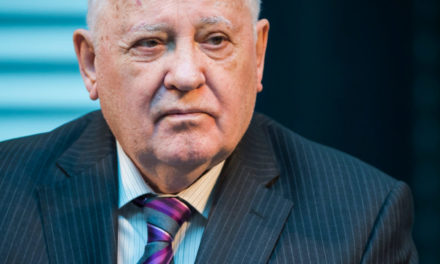
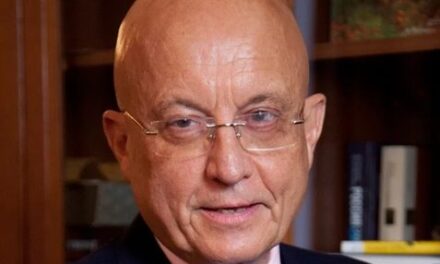
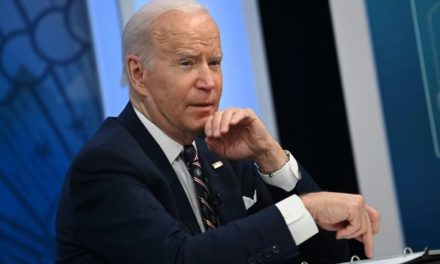
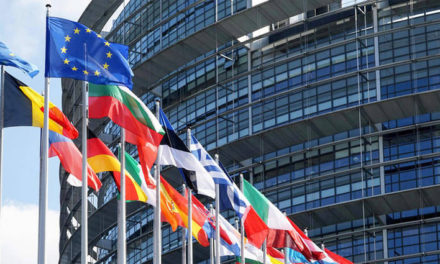




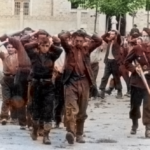
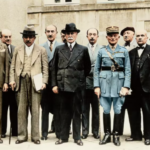
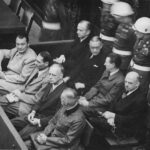

Trackbacks / Pingbacks